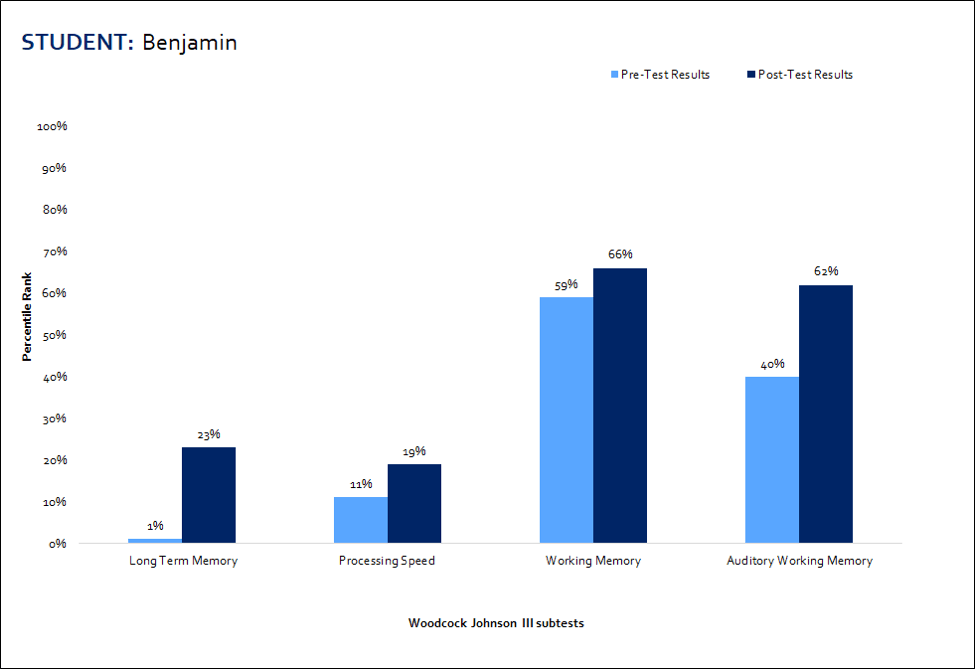Benjamin
Benjamin
- Name: Benjamin
- Age: 16
Cognition & Learning

Benjamin is a polite teenager interested in video games, watching TV and bicycling. He is anxious about doing poorly in school, and this ‘fear of failure’ coupled with perfectionist tendencies makes completing tasks a slow process.
He enrolled in COGx to improve his anxiety and to increase his ability to process information and execute tasks.
Benjamin’s program included exercises that are timed with a stopwatch or paced with a metronome, both of which demand, in their own ways, a strict adherence to a pre-set speed. At first, Benjamin often struggled with this, impeded by his desire to get everything absolutely correct, and his frustration at his inability to do that. Over time, though, Benjamin learned to first sacrifice some accuracy for improved speed, and later to build accuracy back up to previous levels. This cycle was repeated (alternatingly building accuracy and speed) for several iterations, until Benjamin had reached high performance criteria in a variety of tasks in both math-related and verbal domains. Complexity was added over time, to address Benjamin’s goal of improved problem solving.
Through all this work, it was critical to vary Benjamin’s assigned tasks as much as possible, to minimize the risk of “practice effects” — improved performance on a certain exercise that is not necessarily reflective of a more generalized boost to the underlying cognitive skill. By training processing speed in a wide variety of contexts, Benjamin was able to improve the ability to quickly process information as well as to apply this improved skill. In one applied example, a writing exercise we occasionally used forced him to very quickly generate and expand upon ideas to respond to a particular task, an improvement he will carry forward with him.
In working on his processing speed issues, it came out that Benjamin struggles sometimes with long-term associative memory. In particular, he was often unable to remember pairs or groups of items that were not clearly conceptually linked. Benjamin found the linking memory technique useful only when he could verbally explain his links. He was encouraged to rely increasingly on his visualization ability by limiting his verbal response first to just one word, and then to nothing at all. This allowed Benjamin to acquire the skill in a manner suited to his talents.
By the end of the program, Benjamin was no longer felt anxious or concerned about the product of a task, but focused on the process.
He mastered several memory techniques and strategies and demonstrated that he can deploy them quickly to both session and outside work.
